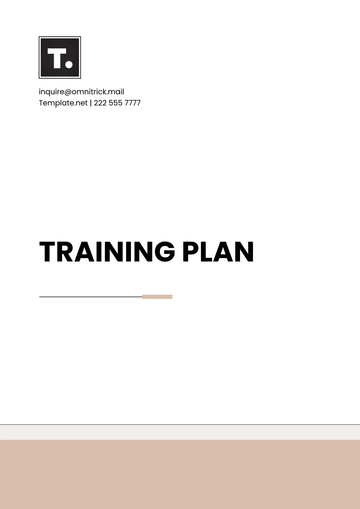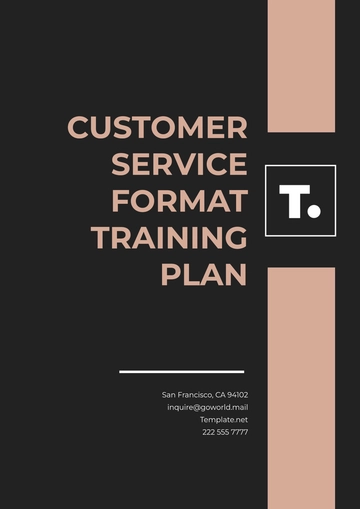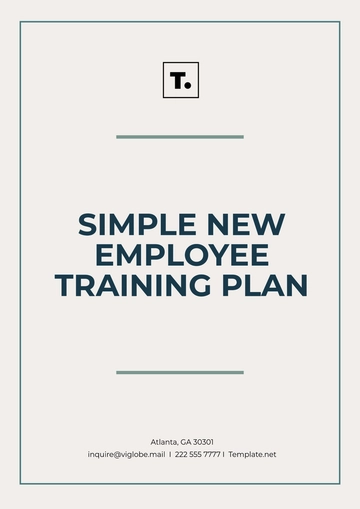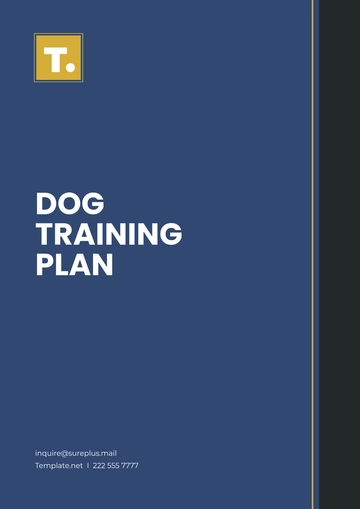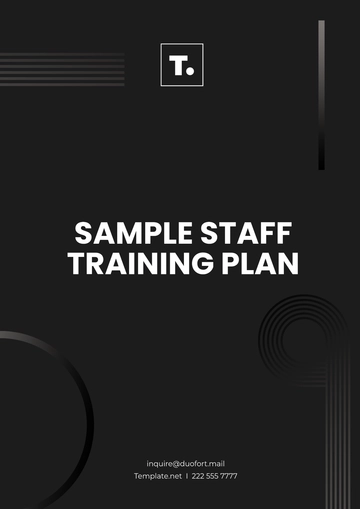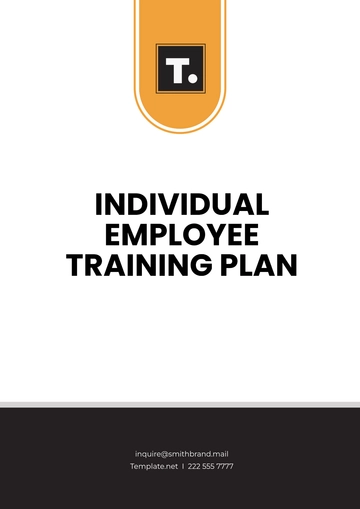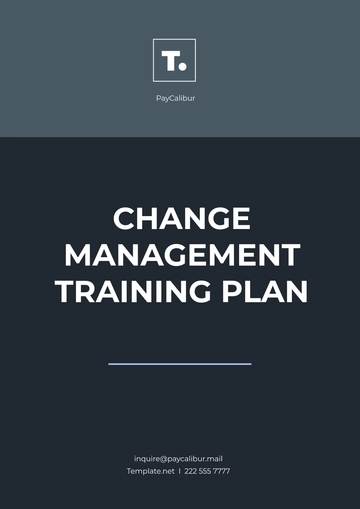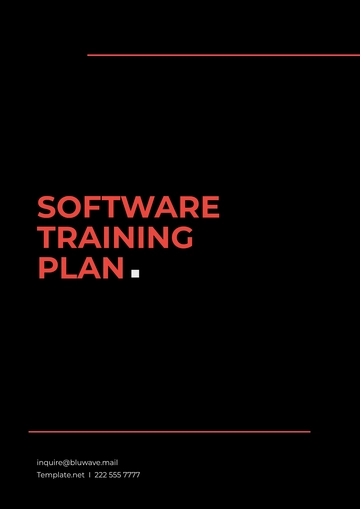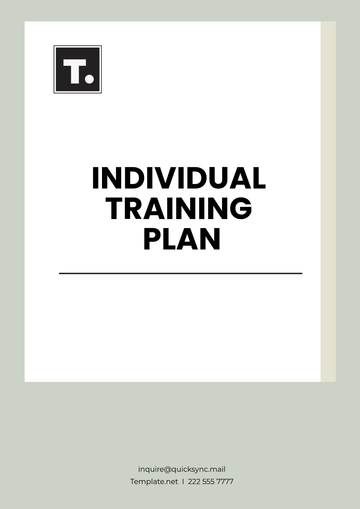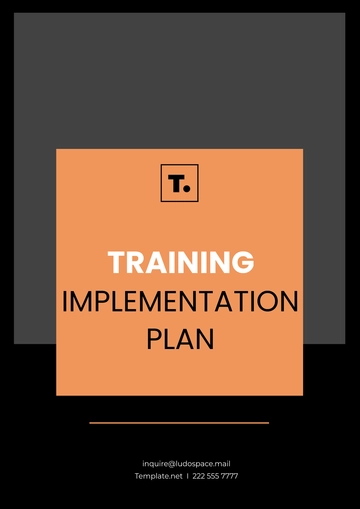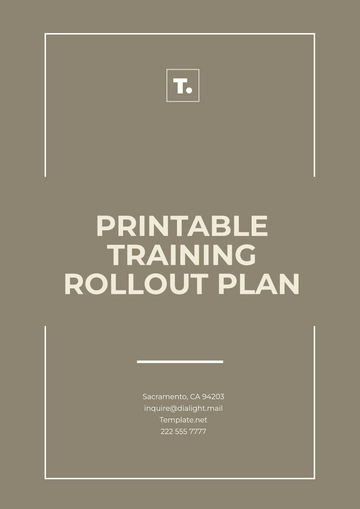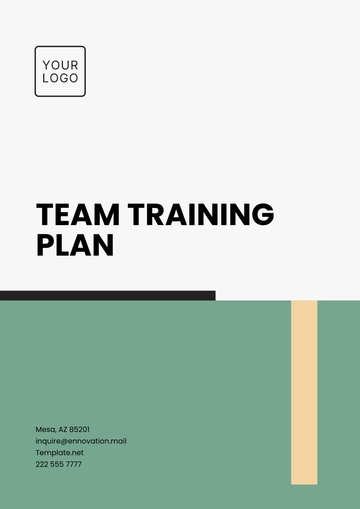Free 90-Day Training Curriculum Design Plan

Prepared by:
[Your Name]
[Your Company Name]
Introduction
This 90-day Training Curriculum Design Plan, prepared by [YOUR COMPANY NAME], aims to provide a structured, hands-on learning experience for participants in the field of Data Analytics. The curriculum is designed to develop foundational, intermediate, and advanced data analysis skills through a series of modules and projects. By the end of the 90 days, participants will be equipped to apply data analytics techniques in real-world business scenarios.
Objectives
To provide participants with a foundational understanding of data analytics tools and concepts.
To develop skills in data visualization, statistical analysis, and predictive modeling.
To ensure participants can apply their learning in practical, business-driven projects.
To assess progress through regular feedback, quizzes, and final evaluations.
Target Audience
New Employees in data-related roles (e.g., data analysts, business analysts).
Current Employees looking to improve their data analytics skills for career development.
Professionals aiming to transition into data-driven roles.
Structure of the Plan
Phase 1: Foundation (Days 1–30)
Goals:
Build foundational knowledge in data analytics tools and concepts.
Introduce participants to key tools such as Excel, SQL, and Python.
Training Modules:
Module | Topics Covered |
|---|---|
Module 1: Introduction to Data Analytics |
|
Module 2: Data Collection and Management |
|
Activities:
Activity | Details |
|---|---|
Hands-on Exercises | Practice using Excel and SQL for data cleaning and basic analysis. |
Group Discussion | Analyze a sample data set and discuss real-world data challenges. |
Evaluation:
Evaluation Method | Details |
|---|---|
Quizzes | Assess understanding of data types, tools, and data collection methods. |
Trainer Feedback | Feedback is provided after each exercise for improvement. |
Phase 2: Skill Development (Days 31–60)
Goals:
Strengthen skills in data visualization and statistical analysis.
Introduce intermediate tools like Tableau, Power BI, and Python for data analysis.
Training Modules:
Module | Topics Covered |
|---|---|
Module 3: Data Visualization Techniques |
|
Module 4: Statistical Analysis |
|
Activities:
Activity | Details |
|---|---|
Visualization Project | Create a visualization using a business data set in Tableau or Power BI. |
Group Analysis | Perform statistical analysis on a real data set using Python. |
Evaluation:
Evaluation Method | Details |
|---|---|
Mid-program Assessment | A test on data visualization and statistical analysis techniques learned. |
Peer Feedback | Review and provide constructive feedback on group analysis projects. |
Phase 3: Advanced Integration (Days 61–90)
Goals:
Apply advanced data analytics techniques to real-world projects.
Develop proficiency in predictive modeling and business intelligence.
Training Modules:
Module | Topics Covered |
|---|---|
Module 5: Advanced Analytics and Predictive Modeling |
|
Module 6: Business Intelligence and Decision-Making |
|
Activities:
Activity | Details |
|---|---|
Capstone Project | Build a predictive model using a real-world data set and present findings. |
Presentation to Management | Present the capstone project results to a mock management team. |
Evaluation:
Evaluation Method | Details |
|---|---|
Final Assessment | Evaluation of capstone project, including model accuracy and presentation quality. |
Instructor and Peer Feedback | Final feedback from trainers and peers on the project deliverables. |
Schedule Overview
Week | Focus | Activities | Evaluation Method |
|---|---|---|---|
1–4 | Foundation | Core modules, hands-on exercises | Quizzes and feedback from trainers |
5–8 | Skill Development | Data visualization project, group analysis | Mid-program assessments and peer feedback |
9–12 | Advanced Integration | Capstone project, business intelligence tools | Final project assessments and presentations |
Resources Required
Software: Microsoft Excel, SQL, Python, Tableau, Power BI.
Instructor Support: Access to mentors or trainers for feedback and guidance.
Materials: Training guides, tutorial videos, and real business data sets.
Monitoring and Evaluation
Weekly Check-ins: Regular updates to monitor progress and address challenges.
Mid-Point Review: In-depth review after Phase 2 to assess progress and provide feedback.
Final Review: Evaluation based on the capstone project and presentation.
This structure ensures a clear and measurable progression through the 90-day curriculum, making sure that participants receive the support and practical experience necessary to excel in data analytics.
- 100% Customizable, free editor
- Access 1 Million+ Templates, photo’s & graphics
- Download or share as a template
- Click and replace photos, graphics, text, backgrounds
- Resize, crop, AI write & more
- Access advanced editor
Design an effective training curriculum with Template.net's 90-Day Training Curriculum Design Plan Template. Fully customizable and editable, it helps you structure impactful training sessions with clear objectives and timelines. Editable in our AI Editor Tool, you can easily tailor it to meet your specific needs. Perfect for educators and trainers, this template ensures successful learning outcomes.
You may also like
- Finance Plan
- Construction Plan
- Sales Plan
- Development Plan
- Career Plan
- Budget Plan
- HR Plan
- Education Plan
- Transition Plan
- Work Plan
- Training Plan
- Communication Plan
- Operation Plan
- Health And Safety Plan
- Strategy Plan
- Professional Development Plan
- Advertising Plan
- Risk Management Plan
- Restaurant Plan
- School Plan
- Nursing Home Patient Care Plan
- Nursing Care Plan
- Plan Event
- Startup Plan
- Social Media Plan
- Staffing Plan
- Annual Plan
- Content Plan
- Payment Plan
- Implementation Plan
- Hotel Plan
- Workout Plan
- Accounting Plan
- Campaign Plan
- Essay Plan
- 30 60 90 Day Plan
- Research Plan
- Recruitment Plan
- 90 Day Plan
- Quarterly Plan
- Emergency Plan
- 5 Year Plan
- Gym Plan
- Personal Plan
- IT and Software Plan
- Treatment Plan
- Real Estate Plan
- Law Firm Plan
- Healthcare Plan
- Improvement Plan
- Media Plan
- 5 Year Business Plan
- Learning Plan
- Marketing Campaign Plan
- Travel Agency Plan
- Cleaning Services Plan
- Interior Design Plan
- Performance Plan
- PR Plan
- Birth Plan
- Life Plan
- SEO Plan
- Disaster Recovery Plan
- Continuity Plan
- Launch Plan
- Legal Plan
- Behavior Plan
- Performance Improvement Plan
- Salon Plan
- Security Plan
- Security Management Plan
- Employee Development Plan
- Quality Plan
- Service Improvement Plan
- Growth Plan
- Incident Response Plan
- Basketball Plan
- Emergency Action Plan
- Product Launch Plan
- Spa Plan
- Employee Training Plan
- Data Analysis Plan
- Employee Action Plan
- Territory Plan
- Audit Plan
- Classroom Plan
- Activity Plan
- Parenting Plan
- Care Plan
- Project Execution Plan
- Exercise Plan
- Internship Plan
- Software Development Plan
- Continuous Improvement Plan
- Leave Plan
- 90 Day Sales Plan
- Advertising Agency Plan
- Employee Transition Plan
- Smart Action Plan
- Workplace Safety Plan
- Behavior Change Plan
- Contingency Plan
- Continuity of Operations Plan
- Health Plan
- Quality Control Plan
- Self Plan
- Sports Development Plan
- Change Management Plan
- Ecommerce Plan
- Personal Financial Plan
- Process Improvement Plan
- 30-60-90 Day Sales Plan
- Crisis Management Plan
- Engagement Plan
- Execution Plan
- Pandemic Plan
- Quality Assurance Plan
- Service Continuity Plan
- Agile Project Plan
- Fundraising Plan
- Job Transition Plan
- Asset Maintenance Plan
- Maintenance Plan
- Software Test Plan
- Staff Training and Development Plan
- 3 Year Plan
- Brand Activation Plan
- Release Plan
- Resource Plan
- Risk Mitigation Plan
- Teacher Plan
- 30 60 90 Day Plan for New Manager
- Food Safety Plan
- Food Truck Plan
- Hiring Plan
- Quality Management Plan
- Wellness Plan
- Behavior Intervention Plan
- Bonus Plan
- Investment Plan
- Maternity Leave Plan
- Pandemic Response Plan
- Succession Planning
- Coaching Plan
- Configuration Management Plan
- Remote Work Plan
- Self Care Plan
- Teaching Plan
- 100-Day Plan
- HACCP Plan
- Student Plan
- Sustainability Plan
- 30 60 90 Day Plan for Interview
- Access Plan
- Site Specific Safety Plan
